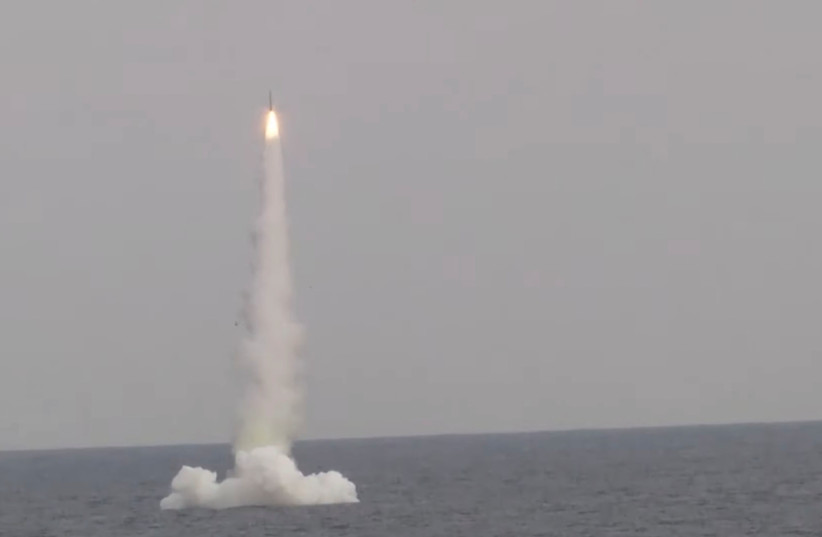Reports raising concern about Russia's Poseidon nuclear torpedo drone should be viewed critically, naval technologies and tactics expert Scott Savitz told The Jerusalem Post.
"Tottering dictatorships, like James Bond villains, often tout supposed superweapons as a refuge from their fears," said Savitz, a Senior engineer at the Rand Corporation.
A critical eye on Russian super weapons
Savitz told the Post that Russian weapons technology, like its military prowess, is often oversold. He said that the autonomous capabilities, range and speed attributed to the Poseidon by Russian sources sound highly implausible.
The Rand engineer gave an example of another maritime technology that Russian military officials have been touting. Savitz said that for over two decades, Russia has been claiming that it possesses supercavitation technology, which creates a blanket of gas around a torpedo so that it can glide through the water without any drag. This would create faster torpedos than those commonly used by Western navies. However, this weapon hasn't been seen in operation.
"Tottering dictatorships, like James Bond villains, often tout supposed superweapons as a refuge from their fears."
Scott Savitz
Russia has seen widespread weapon platform failures during its invasion of Ukraine. Intelligence officials claimed in March that Russian precision-guided missiles were failing to strike their intended targets up to 60% of the time. Throughout the war, Russia has faced supply and logistical failures, which has hindered its ability to maintain and field tanks and other armored vehicles.

<br>Poseidon nuclear torpedo drone
On Monday, the Pentagon said that it had no information about Russia testing the Poseidon weapon in response to reports by La Repubblica claiming that NATO had warned allies that a test of the "Super Torpedo" could occur in the Arctic Kara Sea. The Times also said that the test could occur in the Black Sea.
Russian state media welcomed the reports as showing NATO's fear of what Western media dramatically called "a weapon of the apocalypse."
Ukrainian officials warned that the reports contributed to "information terrorism" by Russia.
While some offer caution in overselling the capabilities of the weapon, Former US Assistant Secretary of State Christopher Ford claimed in 2021 that the weapon could cause a "nuclear tsunami" that could leave US coastal cities uninhabitable.
"It's a terror weapon," Ford said on Government Matters TV. "It's designed to kill or traumatize the inhabitants of American coastal cities."
Dimitry Litovkin, editor-in-chief of Russian state media TASS's military technologies magazine, claimed that Poseidon could act as a loitering munition, laying undetectable on the ocean floor until activation.
There are scant technical details available about the Poseidon, or the Ocean Multipurpose System Status-6, which is actually more akin to an underwater unmanned vehicle than a torpedo. According to Popular Mechanics, it can travel up to 6,200 miles at speeds of 56 knots (Just over 100 kilometers per hour).
<br>Risk of "Armageddon"
Nuclear tensions between Russian and other world powers have been rising since the invasion of Ukraine. Russian President Vladimir Putin said in his reservist mobilization speech on September 21 that NATO was engaging in nuclear blackmail and warned that nuclear winds could blow both ways. Other officials have said that newly annexed Ukrainian territory would be defended with strategic nuclear weapons, and others have called for the use of tactical nuclear weapons.
Former CIA director David Petraeus warned on Sunday that the US military would destroy Russian forces if they were to use nuclear weapons on Ukrainian soil.
On Thursday night, US President Joe Biden warned that Putin's threats risked "the prospect of Armageddon" and that the current situation was like "Kennedy and the Cuban missile crisis."
